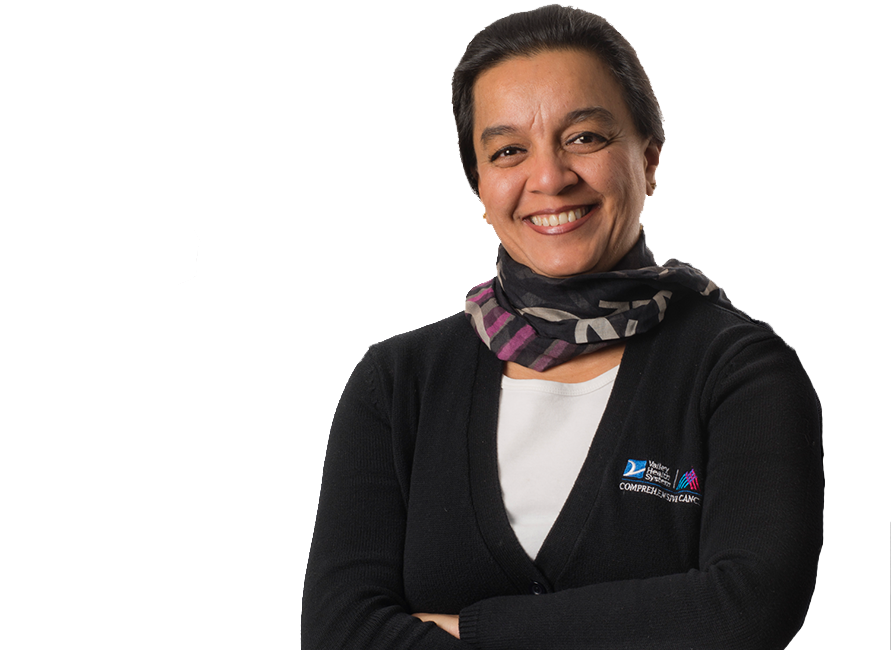If your doctor has recommended Gamma Knife radiosurgery for trigeminal neuralgia, you’re likely curious about what to expect afterward. Though every patient’s experience will be different, it can be helpful to understand typical results. The following information will explain a little about how Gamma Knife radiosurgery works and how it can be used to treat trigeminal neuralgia, including the results following Gamma Knife.
What is Trigeminal Neuralgia?
Trigeminal neuralgia is a chronic pain condition that has historically been difficult to diagnose and manage. The great news is doctors now understand the most common underlying causes, which in turn has led to more effective treatment options, targeting the source of the disturbance. These options include medication, surgery and Gamma Knife radiosurgery, discussed in more detail later.
The nerve that transmits sensory information from the face is called the trigeminal nerve, which is the fifth cranial nerve. In trigeminal neuralgia, something causes the trigeminal nerve to misfire and send inappropriate pain signals in response to non-painful actions, like smiling or a hair brushing your cheek. More often than not, the culprit is a small blood vessel in the brain impinging on the nerve. Sometimes there can be other causes, like a tumor or neurodegenerative disease. Even more rarely, no underlying cause can be found.
What are the Symptoms of Trigeminal Neuralgia?
There’s really just one symptom of trigeminal neuralgia, and that’s pain. However, the pain typically has certain characteristics that help rule out other conditions.
- Patients experience episodes of extreme pain in one side of the face, often described as “electric” or “stabbing”
- These episodes may last seconds or minutes but tend to increase in frequency, duration and intensity over time
- Some patients feel a dull ache, numbness or tingling before an episode begins
- Pain is felt in response to normal activities, like speaking, brushing your teeth and laughing
Unfortunately, there are no diagnostic tests for trigeminal neuralgia. Instead, your doctor will consider your symptoms and perform tests to rule out other conditions. That’s one reason it’s important to work with someone experienced in diagnosing and managing trigeminal neuralgia.
What is Gamma Knife Radiosurgery?
Though it sounds like a surgical procedure, Gamma Knife radiosurgery is actually an advanced form of radiation therapy that can be used to treat trigeminal neuralgia. There are no scalpels or incisions, and the procedure takes place in an outpatient setting. Gamma Knife radiosurgery uses nearly 200 individual beams of low-dose radiation, which combine to have a therapeutic effect. Many patients only undergo a single treatment session, which lasts from 15-20 minutes, and can return home within a few hours. Most patients are back to work and normal activity levels the next day.
What are Typical Results After Gamma Knife Radiosurgery for Trigeminal Neuralgia?
It’s important to understand that all patients are different, and your experience following Gamma Knife radiosurgery may not be the same as the next person’s. It can take weeks or even months to see an improvement in symptoms. However, Gamma Knife radiosurgery can be an excellent treatment option for many patients and has been proven to be effective.
Studies have shown that after Gamma Knife radiosurgery, 75-80% experience good to excellent relief from pain. Patients who do experience relief have a low recurrence rate of symptoms, and patients who do have a relapse or no response can safely be treated a second time.
Interestingly, Gamma Knife radiosurgery can be used to treat many medically refractory cases of trigeminal neuralgia with success, typically seeing an improvement around 8 weeks after treatment. This includes patients who have previously undergone surgery and/or taken medication without relief. Even patients with atypical trigeminal neuralgia (constant pain, rather than episodes) can see improvement after Gamma Knife radiosurgery, though results take approximately 4 weeks longer to manifest.
Why Choose Gamma Knife Radiosurgery?
Your doctor will make treatment recommendations based on your individual condition. However, many patients who are candidates for trigeminal neuralgia surgery are also candidates for Gamma Knife radiosurgery. Gamma Knife radiosurgery can be an excellent treatment option for patients who are not good surgical candidates due to age or health complications or who simply prefer a minimally invasive approach. Benefits include:
- No hospital stay
- No incisions or sutures
- None of the risks related to general anesthesia and surgery
- Little post-operative pain and no risk of infection
- One or two days recovering, as opposed to weeks
Discuss Your Options with Your Doctor
If you are interested in a minimally invasive method to treat your trigeminal neuralgia, Gamma Knife radiosurgery may be an option. With no hospital stay and no lengthy recovery, it can be a great choice for many patients. If you would like to learn more about Gamma Knife radiosurgery and whether it may be an option for you, request a consultation with our team. We can answer your questions and discuss your individual condition to find out if Gamma Knife radiosurgery may help you find relief from your symptoms.

